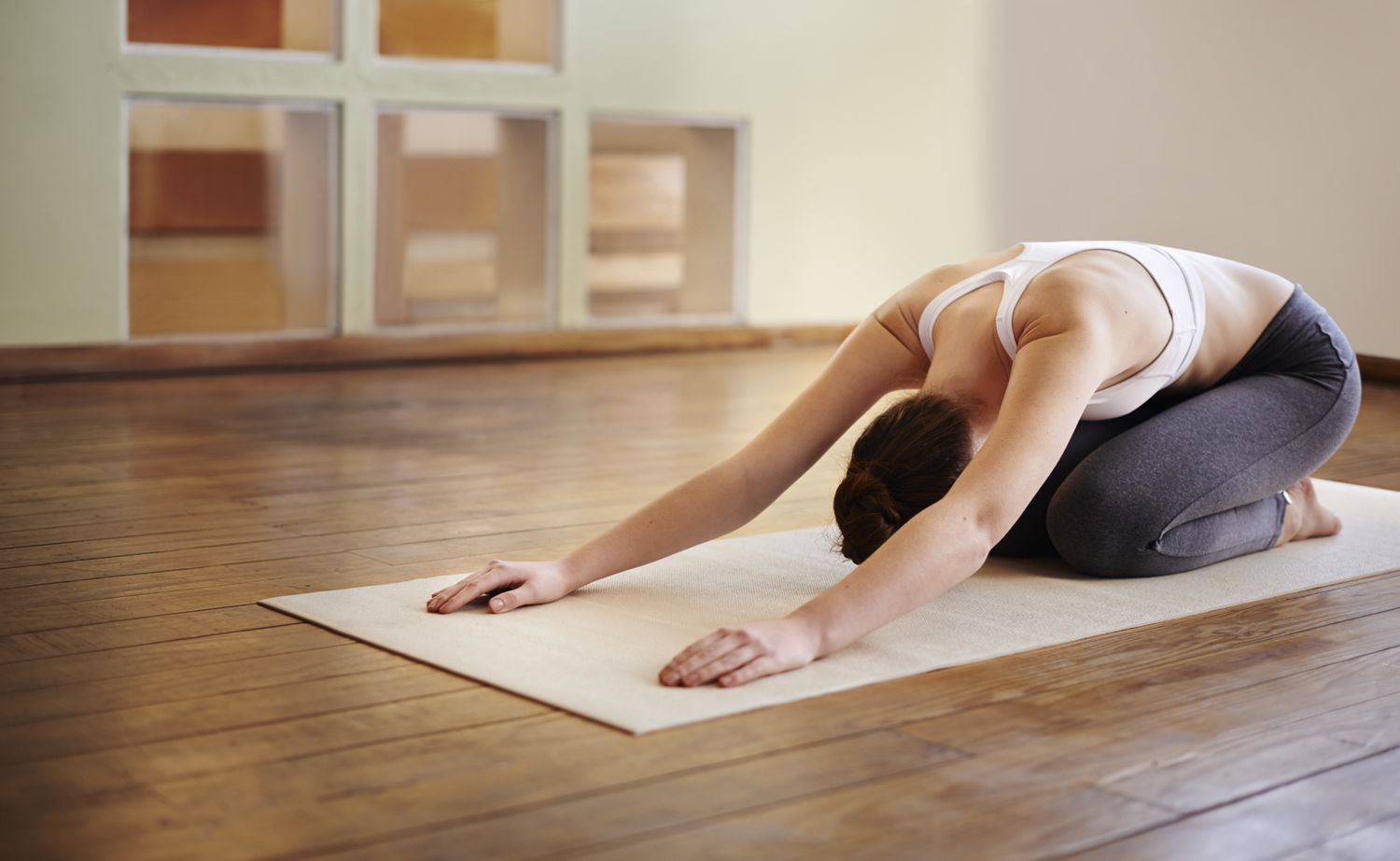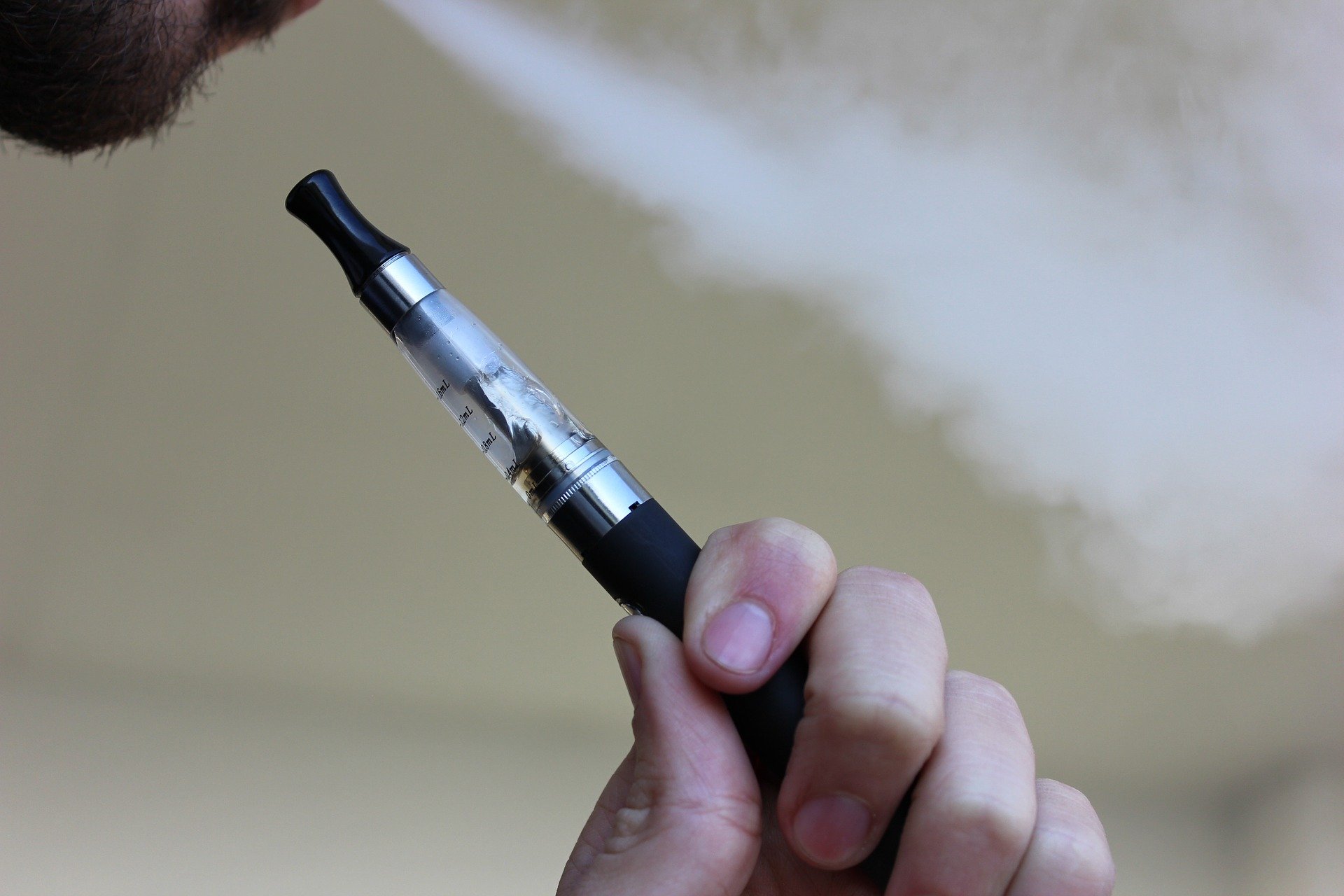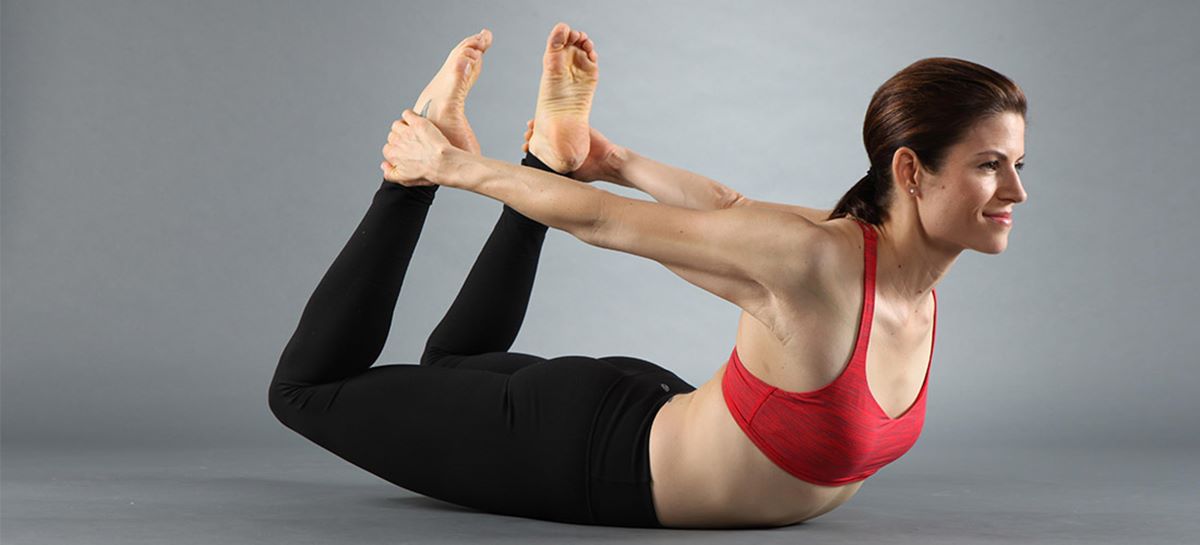

Featured
How Does Exercise Help With Anxiety
Published: September 24, 2023
Discover the benefits of exercise for managing anxiety. Our featured article explores how physical activity can help alleviate symptoms and improve mental well-being. Find out more now!
Introduction
Anxiety is a common mental health issue that affects millions of people around the world. It can be characterized by feelings of worry, fear, and unease, often accompanied by physical symptoms such as increased heart rate, sweating, and difficulty concentrating. While anxiety can be debilitating, there are various treatment approaches that can help manage and alleviate its symptoms. One such approach that has gained significant attention is exercise.
Exercise has long been recognized for its physical health benefits, such as improving cardiovascular fitness, enhancing strength and mobility, and reducing the risks of various diseases. However, the mental health benefits of exercise, particularly when it comes to anxiety, are equally remarkable. Engaging in regular physical activity has been shown to have a profound positive impact on anxiety levels, helping individuals experience a greater sense of calm, improved mood, and reduced anxiety-related symptoms.
While exercise alone may not completely eliminate anxiety, it can serve as a complementary intervention to other treatment strategies, such as therapy or medication. Incorporating exercise into a holistic approach to managing anxiety can enhance overall well-being and contribute to a more balanced and fulfilling life.
In this article, we will explore the ways in which exercise can help with anxiety. We will delve into the physical, cognitive, and emotional effects of exercise on anxiety, and discuss the recommended exercises to specifically target anxiety relief. Additionally, we will provide tips on how to incorporate exercise into your daily routine to optimize its anxiety-reducing benefits.
It is important to note that while exercise can be highly beneficial for anxiety, it is always advisable to consult with a healthcare professional before starting any new exercise regimen, particularly if you have any pre-existing health conditions.
Join us as we delve into the remarkable world of exercise and its impact on anxiety management.
Understanding Anxiety
Anxiety is a complex mental health condition that manifests as excessive worry or fear about everyday situations. It is characterized by persistent feelings of tension, unease, and apprehension, often accompanied by physical symptoms such as rapid heartbeat, shortness of breath, and muscle tension.
There are several different types of anxiety disorders, including generalized anxiety disorder (GAD), social anxiety disorder, panic disorder, and specific phobias. Each type has its own unique set of symptoms and triggers, but they all share a common thread – the overwhelming sense of fear or anxiety.
While it is normal to experience temporary feelings of anxiety during stressful situations, such as before a job interview or an important presentation, anxiety becomes a problem when it starts to interfere with daily life. Chronic or excessive anxiety can have a significant impact on a person’s mental, emotional, and physical well-being.
The exact cause of anxiety is still not fully understood, but it is believed to be a combination of genetic, environmental, and neurological factors. Traumatic life events, chronic stress, and imbalances in brain chemistry are also thought to contribute to the development of anxiety disorders.
It is important to note that anxiety is a highly individualized experience, and what triggers anxiety in one person may not affect another. Understanding one’s personal anxiety triggers can be instrumental in developing effective coping mechanisms and treatment plans.
Common symptoms of anxiety include:
- Excessive worry or fear
- Restlessness or feeling on edge
- Difficulty concentrating
- Irritability
- Trouble sleeping
- Physical symptoms such as increased heart rate, sweating, and trembling
Living with anxiety can be challenging, but it is important to remember that it is a treatable condition. Various therapeutic approaches, including medication, therapy, and lifestyle changes, can help manage and alleviate anxiety symptoms. And one such lifestyle change that has shown great promise is exercise.
Next, we will explore the specific benefits of exercise for anxiety and how it can positively impact both the mind and body.
The Benefits of Exercise for Anxiety
Exercise is a powerful tool that can contribute to better mental health and has been shown to have numerous benefits for individuals experiencing anxiety. Incorporating regular physical activity into your routine can help reduce anxiety symptoms, improve mood, and enhance overall well-being. Let’s explore the specific ways in which exercise can benefit those with anxiety:
1. Physical Effects of Exercise on Anxiety:
Engaging in physical activity stimulates the release of endorphins, often referred to as “feel-good” chemicals, in the brain. These endorphins act as natural mood elevators and can help reduce feelings of stress and anxiety. Regular exercise also helps improve cardiovascular health, promotes better sleep, and increases energy levels, all of which can indirectly contribute to reducing anxiety symptoms.
2. Cognitive Effects of Exercise on Anxiety:
Exercise has a positive impact on cognitive function and can help alleviate anxiety-related cognitive symptoms. It improves concentration, enhances memory, and boosts mental clarity, allowing individuals to better focus on tasks and organize their thoughts. Exercise can also help break the cycle of negative thinking patterns often associated with anxiety, promoting a more positive and productive mindset.
3. Emotional Effects of Exercise on Anxiety:
Regular physical activity has been shown to significantly reduce symptoms of depression, which often co-occur with anxiety. Exercise releases neurotransmitters such as serotonin, dopamine, and norepinephrine, which all play a crucial role in regulating mood and promoting feelings of happiness and well-being. By improving emotional resilience and managing stress, exercise can help individuals better cope with anxiety-triggering events and experiences.
4. Social Effects of Exercise on Anxiety:
Engaging in exercise can provide opportunities for social interaction and support, which are vital for mental health and well-being. Participating in fitness classes, joining a sports team, or simply exercising with a friend or loved one can help combat feelings of isolation and loneliness often associated with anxiety. Social support and connection can provide a sense of belonging and serve as a valuable source of encouragement and motivation to maintain an exercise routine.
Understanding the benefits of exercise for anxiety is just the first step. In the next section, we will explore the recommended exercises that can specifically target anxiety relief and help individuals experience the positive effects of physical activity on their mental well-being.
Physical Effects of Exercise on Anxiety
Engaging in regular exercise has numerous physical effects on the body that can help reduce anxiety symptoms and promote overall well-being. Let’s delve into the specific ways in which exercise impacts anxiety from a physical standpoint:
1. Release of Endorphins:
One of the key physical effects of exercise on anxiety is the release of endorphins, the brain’s natural feel-good chemicals. When you exercise, your body produces and releases these endorphins, which interact with receptors in the brain to reduce pain perception and promote a sense of well-being. This release of endorphins acts as a natural mood elevator and can significantly reduce anxiety symptoms.
2. Reduction of Stress Hormones:
Exercise has been shown to decrease the levels of stress hormones in the body, such as cortisol, which are often elevated in individuals experiencing chronic anxiety. By regularly engaging in physical activity, you can help regulate cortisol levels and promote a more balanced stress response. This reduction in stress hormones can contribute to a calmer state of mind and help alleviate anxiety-related symptoms.
3. Improved Sleep:
Anxiety can often lead to difficulties in falling asleep or staying asleep. Regular exercise has been shown to improve sleep quality and duration, which can have a positive impact on anxiety levels. Engaging in physical activity helps regulate the sleep-wake cycle, promoting a more restful and rejuvenating sleep. By getting enough quality sleep, individuals can experience enhanced mental clarity and reduced anxiety during the day.
4. Increased Energy Levels:
Exercise enhances cardiovascular fitness, improves circulation, and boosts overall energy levels. This increase in energy can have a direct impact on anxiety management. When you have more energy, you are better equipped to tackle daily tasks and challenges, reducing feelings of overwhelm and stress. Exercise can also help combat fatigue, a common symptom experienced by individuals with anxiety.
5. Relaxation and Tension Release:
Engaging in physical activity, such as yoga or tai chi, promotes relaxation and helps release muscle tension. These types of exercises focus on deep breathing, stretching, and body awareness, which can induce a state of calmness and reduce physical symptoms of anxiety. The combination of relaxation techniques and physical movement helps relax both the body and mind, creating a sense of balance and tranquility.
Understanding the physical effects of exercise on anxiety is essential for harnessing its benefits. However, exercise’s impact on anxiety is not limited to the physical realm. In the next section, we will explore the cognitive effects of exercise and how it can positively influence anxiety from a mental perspective.
Cognitive Effects of Exercise on Anxiety
Exercise has a profound impact on cognitive function and can significantly influence anxiety from a mental perspective. Let’s delve into the specific cognitive effects of exercise on anxiety:
1. Improved Concentration and Focus:
Regular exercise has been shown to enhance cognitive function, including concentration, focus, and attention span. When you engage in physical activity, blood flow to the brain increases, delivering oxygen and nutrients necessary for optimal brain function. This improved blood flow can boost cognitive performance, making it easier to focus on tasks and activities, reducing anxious thoughts and distractions.
2. Enhanced Memory and Learning:
Exercise has a positive impact on memory and learning processes. Physical activity stimulates the release of neurotrophic factors, such as brain-derived neurotrophic factor (BDNF), which play a crucial role in promoting neuronal growth, development, and plasticity. By increasing these neurotrophic factors, exercise supports the formation of new neural connections, improving memory retention and enhancing the ability to learn and retain information.
3. Reduction of Negative Thinking Patterns:
Anxiety is often characterized by negative thinking patterns and rumination. Engaging in exercise interrupts these patterns by shifting the focus to the physical activity at hand. Exercise serves as a healthy distraction, allowing individuals to temporarily break free from anxious thoughts and redirect their attention towards the present moment. This break from negative thinking can be immensely beneficial in managing anxiety and promoting overall mental well-being.
4. Stress Regulation:
Exercise plays a significant role in regulating stress. Regular physical activity helps the body adapt and respond to stress more efficiently. By engaging in exercise, individuals activate the body’s stress response system, allowing it to practice and become more adept at managing stressors. This improved stress regulation can lead to a reduction in anxiety symptoms and an increase in overall resilience to stressful situations.
5. Promotion of Positive Mood:
In addition to the physical effects, exercise has a direct impact on mood regulation. When you exercise, the brain releases neurotransmitters such as serotonin, dopamine, and norepinephrine, among others. These neurotransmitters are known to play a crucial role in supporting positive mood states and reducing feelings of anxiety and depression. By increasing the levels of these mood-enhancing chemicals, exercise can promote a more positive mindset and improve overall emotional well-being.
Understanding the cognitive effects of exercise on anxiety can empower individuals to harness the full potential of physical activity in managing their anxiety symptoms. In the next section, we will explore the emotional effects of exercise and how it can positively impact anxiety from an emotional standpoint.
Emotional Effects of Exercise on Anxiety
Exercise has a profound impact on emotional well-being and can significantly influence anxiety from an emotional standpoint. Let’s delve into the specific emotional effects of exercise on anxiety:
1. Reduction of Anxiety Symptoms:
Engaging in regular exercise has been shown to significantly reduce symptoms of anxiety. Physical activity stimulates the release of endorphins, serotonin, and other neurotransmitters in the brain that are known to promote feelings of happiness and well-being. These chemicals help counteract the negative emotions associated with anxiety, leading to a reduction in anxiety symptoms and an overall improvement in mood.
2. Stress Reduction:
Anxiety is often accompanied by high levels of stress. Exercise is a natural stress reliever, as it helps lower stress hormones, such as cortisol, in the body. Through physical activity, individuals can channel their stress and tension, allowing their bodies to release pent-up energy and promoting a sense of calmness and relaxation. This reduction in stress contributes to emotional well-being and helps manage anxiety levels.
3. Increased Emotional Resilience:
Regular exercise has been shown to enhance emotional resilience, which is the ability to cope with and bounce back from stressful situations. By challenging yourself physically, whether through endurance training or strength training, you develop mental toughness and learn to push through discomfort. This mental resilience translates into better emotional resilience, allowing you to better cope with anxiety-inducing events or triggers.
4. Mood Enhancement:
Exercise has an immediate and long-term impact on mood enhancement. Physical activity stimulates the release of endorphins, which are known as the “feel-good” chemicals in the brain. These endorphins contribute to a sense of euphoria and boost overall mood. Regular exercise can also lead to better regulation of mood, leading to a more balanced emotional state and a decrease in anxiety-related mood swings.
5. Increased Self-Confidence:
Regular exercise can enhance self-confidence and self-esteem, which is often affected by anxiety. Seeing progress in your physical abilities and witnessing positive changes in your body can significantly increase self-confidence. Moreover, the sense of accomplishment and satisfaction that comes with achieving fitness goals can translate into other areas of life, giving individuals a greater sense of control over their emotions and reducing anxiety.
Understanding the emotional effects of exercise on anxiety can empower individuals to harness the full potential of physical activity in managing their anxiety symptoms. In the next section, we will explore the recommended exercises that can specifically target anxiety relief and provide optimal benefits for mental well-being.
Recommended Exercises for Anxiety Relief
When it comes to choosing exercises to relieve anxiety, it’s important to find activities that you enjoy and that suit your fitness level. The following exercises have been found to be particularly beneficial for anxiety relief:
1. Aerobic Exercises:
Aerobic exercises, such as brisk walking, jogging, cycling, or swimming, are excellent choices for anxiety relief. These activities increase heart rate and promote the release of endorphins, helping to reduce anxiety symptoms and improve overall mood. Aim for at least 30 minutes of moderate-intensity aerobic exercise most days of the week to experience the maximum benefits.
2. Yoga and Meditation:
Yoga combines physical movement, breath control, and mindfulness, making it a powerful practice for anxiety relief. The combination of stretching, strengthening, and relaxation in yoga helps reduce muscle tension and promotes a calm mind. Incorporate gentle yoga poses, breathing exercises, and meditation into your routine to promote relaxation and emotional well-being.
3. Tai Chi:
Tai Chi is a gentle martial art that combines slow, flowing movements with deep breathing and meditation. This ancient practice promotes relaxation, focus, and balance, making it an excellent choice for individuals with anxiety. Tai Chi helps to calm the mind and release tension, while also improving physical strength and coordination.
4. Strength Training:
Strength training exercises, such as weightlifting or bodyweight exercises, can have numerous benefits for anxiety relief. Strength training helps release endorphins and improve overall mood, similar to aerobic exercises. Additionally, building strength and improving physical fitness can boost self-confidence and provide a sense of accomplishment, contributing to reduced anxiety levels.
5. Mindful Walking:
Walking in nature while practicing mindfulness can be a powerful exercise for anxiety relief. As you walk, notice the sensations in your body, the sounds around you, and the beauty of your surroundings. Engaging your senses and focusing on the present moment helps to calm the mind and reduce anxious thoughts. Aim for a leisurely pace and choose natural environments, such as parks or trails, to enhance the calming effects.
Remember, the key is to find exercises that you enjoy and feel comfortable with. Experiment with different activities and listen to your body. Start gradually and gradually increase the intensity and duration of your workouts as you build strength and confidence. Consult with a healthcare professional or certified fitness trainer if you have any underlying health conditions or concerns.
Incorporating these recommended exercises into your routine can have a significant positive impact on anxiety relief. In the next section, we will provide some tips for incorporating exercise into your daily life to maximize its anxiety-reducing benefits.
Tips for Incorporating Exercise into Your Routine
Incorporating exercise into your daily routine can seem challenging, especially when dealing with anxiety. However, with some planning and commitment, you can make exercise a regular part of your life. Here are some tips to help you incorporate exercise into your routine:
1. Start Small and Gradually Increase:
Begin with small, achievable goals. Set aside a few minutes each day for physical activity, such as a short walk or a few yoga poses. As your fitness level improves, gradually increase the duration and intensity of your exercises. Starting small allows you to build confidence and develop consistency over time.
2. Find Activities You Enjoy:
Choose exercises that you genuinely enjoy. When you engage in activities that you find enjoyable, you’re more likely to stick with them. Whether it’s dancing, swimming, hiking, or playing a sport, find something that brings you joy and makes you want to move your body.
3. Schedule Exercise Time:
Make exercise a priority by scheduling it into your daily routine. Treat exercise as an important appointment with yourself. Set aside specific times for physical activity and treat them as non-negotiable. By scheduling exercise, you’re more likely to follow through and make it a consistent habit.
4. Break it into Mini-Sessions:
If finding a chunk of time for exercise feels overwhelming, break it into shorter sessions throughout the day. For example, instead of a 30-minute workout, try three 10-minute bursts of activity. Incorporate short walks during breaks at work, or include quick exercise routines during TV commercial breaks. These mini-sessions still provide significant benefits and can be more manageable for those with busy schedules.
5. Make it a Social Activity:
Exercise with a friend or join group fitness classes to make it a social activity. Having a workout partner or participating in group activities can provide motivation, accountability, and boost your enjoyment of the exercise. Not only will you get the benefits of physical activity, but you’ll also have the opportunity to connect with others and combat feelings of isolation.
6. Keep it Varied and Interesting:
Avoid getting bored by mixing up your exercise routine. Try different activities and explore various workout styles. Incorporate a combination of cardiovascular exercises, strength training, and mindfulness practices to keep things interesting. Variety not only helps prevent boredom but also targets different aspects of physical and mental well-being.
7. Practice Self-Compassion:
Be kind to yourself and listen to your body. Some days, exercise may feel more challenging, and that’s okay. It’s important to honor your limits and not push yourself past what feels comfortable. Remember that exercise is meant to enhance your well-being, rather than add to stress or pressure.
By incorporating these tips into your routine, you can establish a sustainable exercise habit that supports your mental and physical health. Remember, consistency is key, so find what works best for you and make exercise a part of your self-care routine.
Conclusion
Exercise is a powerful tool for managing anxiety and promoting overall well-being. It offers a wide range of benefits, including physical, cognitive, and emotional effects that can significantly reduce anxiety symptoms and improve quality of life.
By engaging in regular physical activity, individuals can experience a release of endorphins, reduction in stress hormones, improved sleep, and increased energy levels. Exercise also has cognitive benefits, enhancing concentration, focus, and memory. Emotionally, exercise helps reduce anxiety symptoms, enhance emotional resilience, and promote a positive mood.
Recommended exercises for anxiety relief include aerobic exercises, yoga and meditation, Tai Chi, strength training, and mindful walking. Finding activities that you enjoy and that suit your fitness level is essential for long-term adherence. Incorporating exercise into your routine can be achieved by starting small, scheduling exercise time, breaking it into mini-sessions, making it a social activity, keeping it varied and interesting, and practicing self-compassion.
It is important to remember that exercise is not a standalone treatment for anxiety and should be utilized as part of a comprehensive approach that may include therapy, medication, and other lifestyle changes. If you have any pre-existing health conditions or concerns, it is always advisable to consult with a healthcare professional before starting a new exercise regimen.
Incorporating exercise into your daily life can have a profound impact on anxiety management, promoting better mental health, and enhancing overall well-being. So, lace up your sneakers, roll out your yoga mat, or embark on a peaceful walk in nature. Let exercise become your ally in the journey toward managing anxiety and achieving a healthier, happier life.









